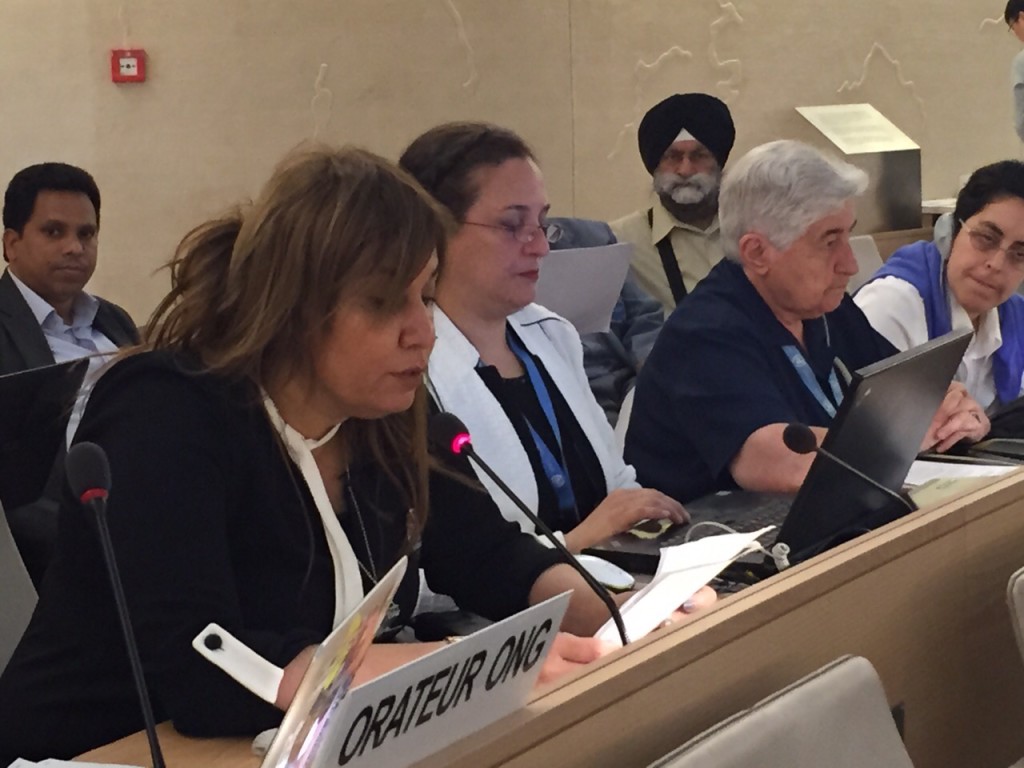https://www.youtube.com/watch?v=FKcvtupz3rY&feature=youtu.be
On June 22, Nedal Al-Salman participated in an interactive dialogue on arbitrary and extrajudicial executions in Bahrain at the 29th session of the United Nations Human Rights Council in Geneva. The intervention was delivered on behalf of Americans for Democracy & Human Rights in Bahrain (ADHRB), the Bahrain Centre for Human Rights (BCHR), and the Bahrain Institute for Rights and Democracy (BIRD).
Please continue reading for full remarks or click here to download a PDF.
الرجاء الضغط هنا لقراءة هذه الرسالة باللغة العربي
Mr. President,
On behalf of Al Salam Foundation, together with Americans for Democracy & Human Rights in Bahrain, I would like to thank SR Heyns for his remarks.
Pending extrajudicial, summary or arbitrary executions are imminent concerns that urgently require the attention of this Council. It is also crucial however, to recognize when such executions have already taken place, and to encourage accountability for the violation of the most basic right to life.
This is true in countries like Bahrain, where a pattern of executions from torture and excessive use of force exist as a direct reprisal to the exercise of expression, opinion and, or, assembly. For example, in 2011, human rights blogger Zakariyah Ashiri was arbitrarily arrested and beaten to death in the custody of Bahraini authorities. All five policemen involved in his death have been acquitted, and authorities have vehemently denied accusations, despite images of his extensive bodily injuries validating these allegations.
Similarly, the co-founder of Bahraini newspaper Al-Wasat, also appeared dead in 2011 after 9 days of disappearance under the custody of Bahraini authorities. The injuries on his body were equally consistent with allegations that he was tortured to death.
Finally, it is also a grave concern that a growing number of individuals have been delivered execution sentences in Bahrain. It is even more worrying that many of these individuals have been convicted through arbitrary trials based on coerced confessions that are extracted by torture; with two death sentences of this nature having been issued as recently as March of this year.
We therefore ask SR Heynes to comment on how the Council can effectively respond to cases that warrant immediate attention, but also to cases that represent past occurrences.
Thank you.





